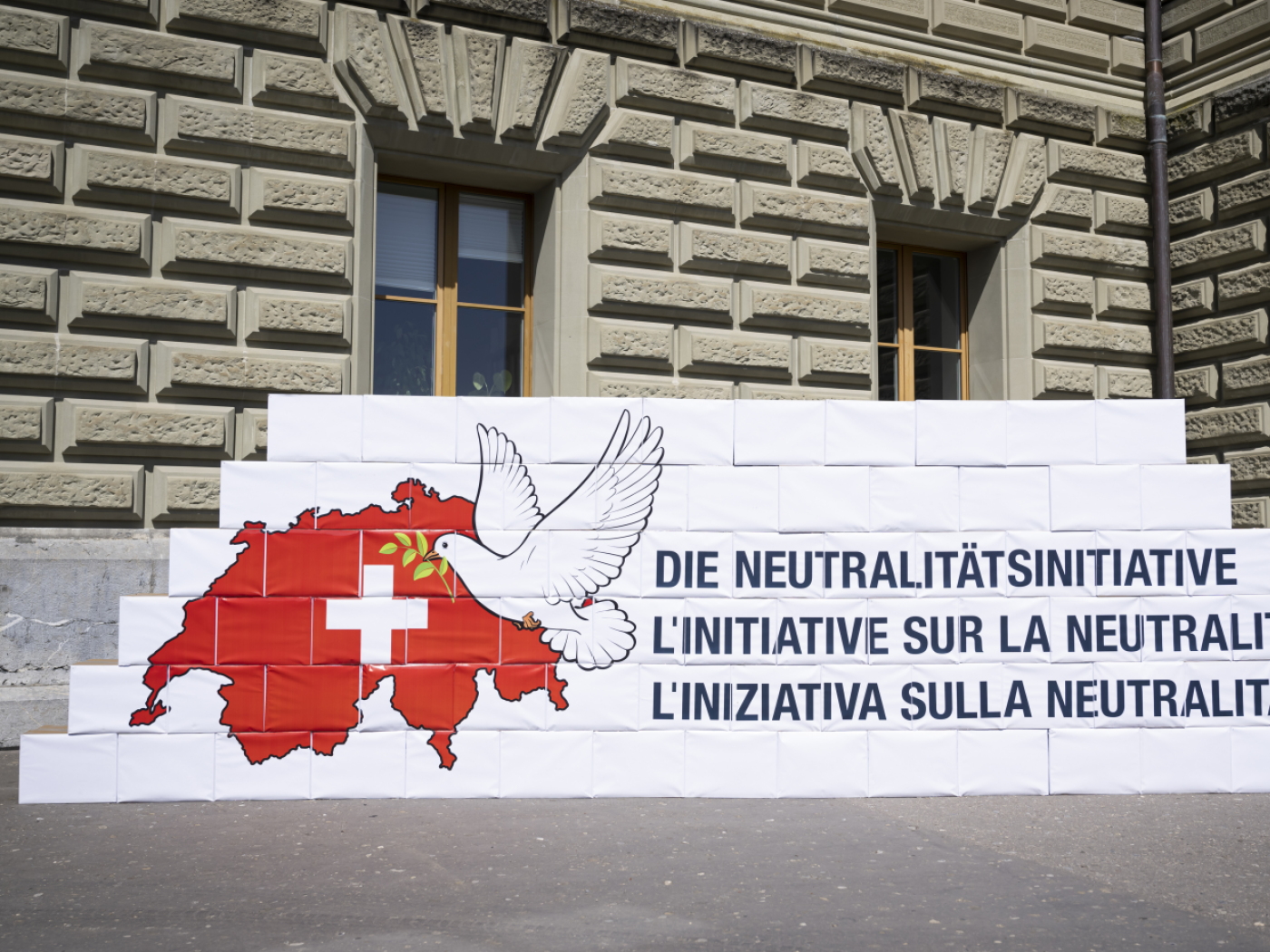
Art Basel expands to Qatar despite the drums of war in the Middle East

Following an aggressive expansion drive post-pandemic, Art Basel announced a new venue for 2026 in Doha, which is being set up by Vincenzo de Bellis. The Italian curator tells Swissinfo about the fair’s vision for the operation.
Following an aggressive expansion drive post-pandemic, Art Basel announced a new venue for 2026 in Doha, which is being set up by Vincenzo de Bellis. The Italian curator tells Swissinfo about the fair’s vision for the operation.
Art Basel has built an undisputable brand as the world’s leading art fair with a steady strategy of expansion, inaugurating a new venue roughly every ten years. In 2003 it opened Art Basel Miami; in 2013 it was Hong Kong; in 2022, Paris. The pace now seems to be accelerating: in late May, the company announced its next addition to the global art fair calendar – Art Basel Qatar, to take place for the first time in February 2026.
The new fair is led by the Italian curator Vincenzo de Bellis, adding to his existing roles at Art Basel as Chief Artistic Officer and Global Director Art Basel Fairs. De Bellis, who reports to Art Basel’s CEO, Noah Horowitz, also supervises the work of the fair directors.
Appointing a director responsible for each individual fair has allowed Art Basel to consolidate its expansion while reinforcing local ties. De Bellis’s mission in Qatar is to set up the operation, then entrust it to a local director.
“Our goal is always to have a local team and local leadership operating the fair. That’s true for all our fairs and that’s going to be the same in Qatar”, he said in an interview at the Basel edition of Art Basel in mid-June. “The modus operandi will be the same, and it is culturally important to be represented in that region with people who are from that specific region.”

Qatar in Basel
We meet in the back rooms of Art Basel’s Collectors’ Lounge, or the VIP lounge – an area off-limits to the fair’s crowd and to journalists. On the way, it is impossible not to notice the Qatari presence, with models of the cultural spaces slated for the Art Basel show in the Gulf state. The most prominent of these is a maquette of the Lusail MuseumExternal link, designed by Swiss star architects Herzog & de Meuron, and due to open in 2029. Qatari cuisine also has a starring role in a specially dedicated pavilion.
A couple of days before, at a press reception prior to the official opening of this year’s Art Basel, de Bellis announced that the fair organiser had struck a global deal with Qatar Airways. The airline will be the official partner “supporting all of the prestigious annual exhibitions in Basel, Paris, Hong Kong, and Miami, as well as its newly launched edition in Qatar.”
So, is it all part of the package? “I wouldn’t call it a package”, says de Bellis. “It’s not all one thing. It’s a natural evolution of what we are doing as we work with many other brands, and Qatar Airways is just one of them.”
De Bellis insists that Art Basel’s approach is to “develop our programme with our partners in each region. We develop and they follow us in other venues. We like to bring our cities with us to the other cities where we operate.”

Art Basel Qatar will also start on a modest scale, despite the superlatives associated with the new venture. De Bellis announced that the first edition of the fair will comprise around 50 galleries. In Basel there were 289 this year, the same number that is expected in Miami in December; in Paris there will be 203 in October; and there were 240 in Hong Kong last March.
De Bellis says that it will be a mix of international and local (meaning the Middle East and North Africa, or the “Mena” region) galleries. Several dealers contacted during the show in Basel said they applied for Qatar but, especially among the small and mid-size galleries, the general perception is that, at least in its opening edition, the fair will privilege the big players.
Echoes of the World Cup
Unsurprisingly, Art Basel has had to face the kind of criticism that cast a shadow over the FIFA World Cup in Qatar in 2022, especially the country’s record on human rightsExternal link and labour conditions. The treatment of migrant workers, women, and LGBT rights led to accusations of “sportswashing”.
De Bellis dismisses all of this, arguing that Art Basel has a strict code of conductExternal link “that we and all our partners must follow.”
“At the same time”, he adds, “we also follow the law of the land where we are going to operate.” The question of what happens if the law of the land contradicts Art Basel’s code of conduct was left in the air.
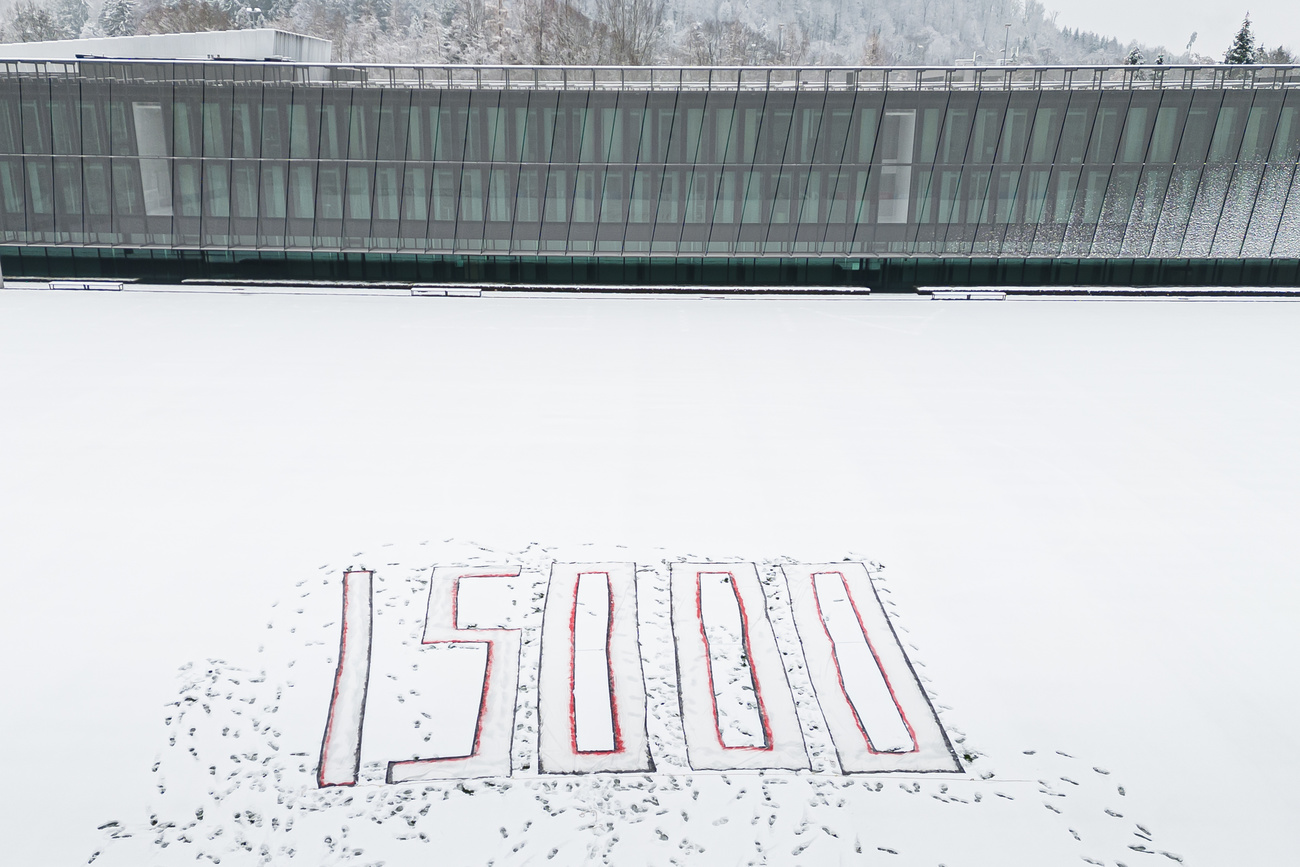
In any case, this discussion perhaps sheds an unfair spotlight on Qatar, given that Art Basel already operates in Hong Kong; China’s human rights record, after all, is also far from unblemished.
And in terms of censorship and constraints to freedom of expression, the state of Florida, where the Miami fair takes place, is also no paragon under the administration of its Republican governor, Ron de SantisExternal link, with his controversial policies targeting school curricula and universities.
Culture boom
The new fair is a partnership between Art Basel and its parent company, MCH, with two major Qatari institutions: QSIExternal link (Qatar Sports Investments), which is a part of Qatar’s sovereign wealth fund and the leading organisational structure behind the FIFA World Cup; and QC+, which describes itself as a “strategic and cultural collective specialized in cultural commerce and art curation”.
Art Basel Qatar also represents a development of the long-term strategy devised by Sheikha Al-Mayassa bint Hamad bin Khalifa Al Thani, the sister of the Qatari emir. For over 20 years, she has been the driving force behind the emirate’s extensive investment in cultural infrastructure. She is also the chairperson, among others, of Qatar Museums and the Doha Film Foundation, which for over a decade has been a significant investor in film productions from the Global South.
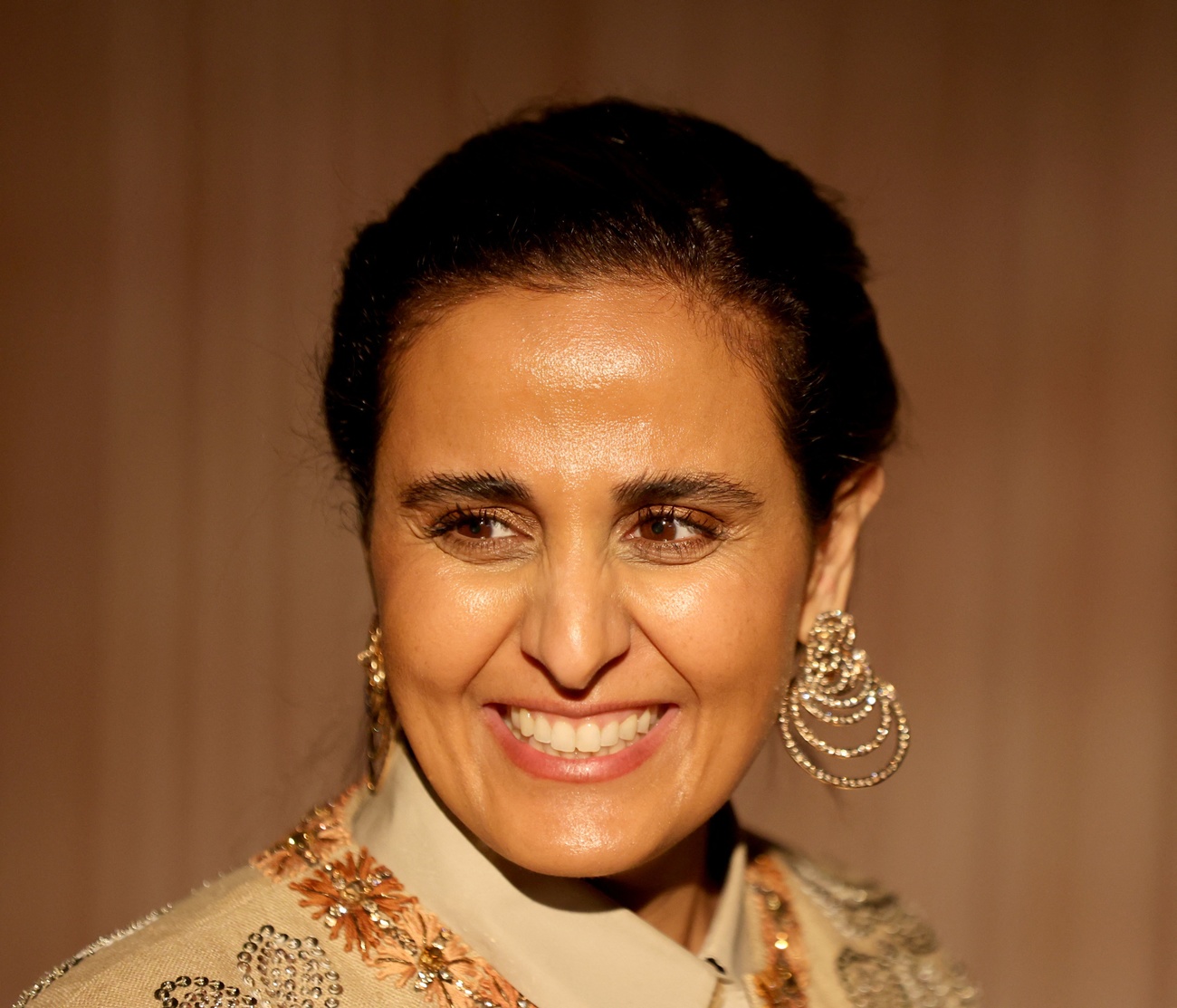
Sheikha Al-Mayassa made a rare public appearance during Art Basel at a panel discussion together with two Swiss luminaries, the architect Jacques Herzog and the artist Urs Fischer. She said that her project is entering a “final chapter” that will culminate with the inauguration of the Lusail museum in 2029.
This institution is probably conceptually the most daring of the impressive museums built in recent years; others include the National Museum of Qatar and the Museum of Islamic Art, arguably one of the most comprehensive in the field.
Examining Orientalism
Lusail was originally a settlement where the founder of Qatar, Sheikh Jassim bin Mohammed Al Thani, established his governance centre in the early 1900s. Lusail City is a planned city, remarkable for its innovative urban design and integration of modern infrastructure.
The museum designed by Herzog & de Meuron is a “museum of ideas” dedicated to “Orientalist art”, that is, the way the “Orient” has been depicted in the west. It is intended to confront and propose new approaches to the subject of decolonisation.
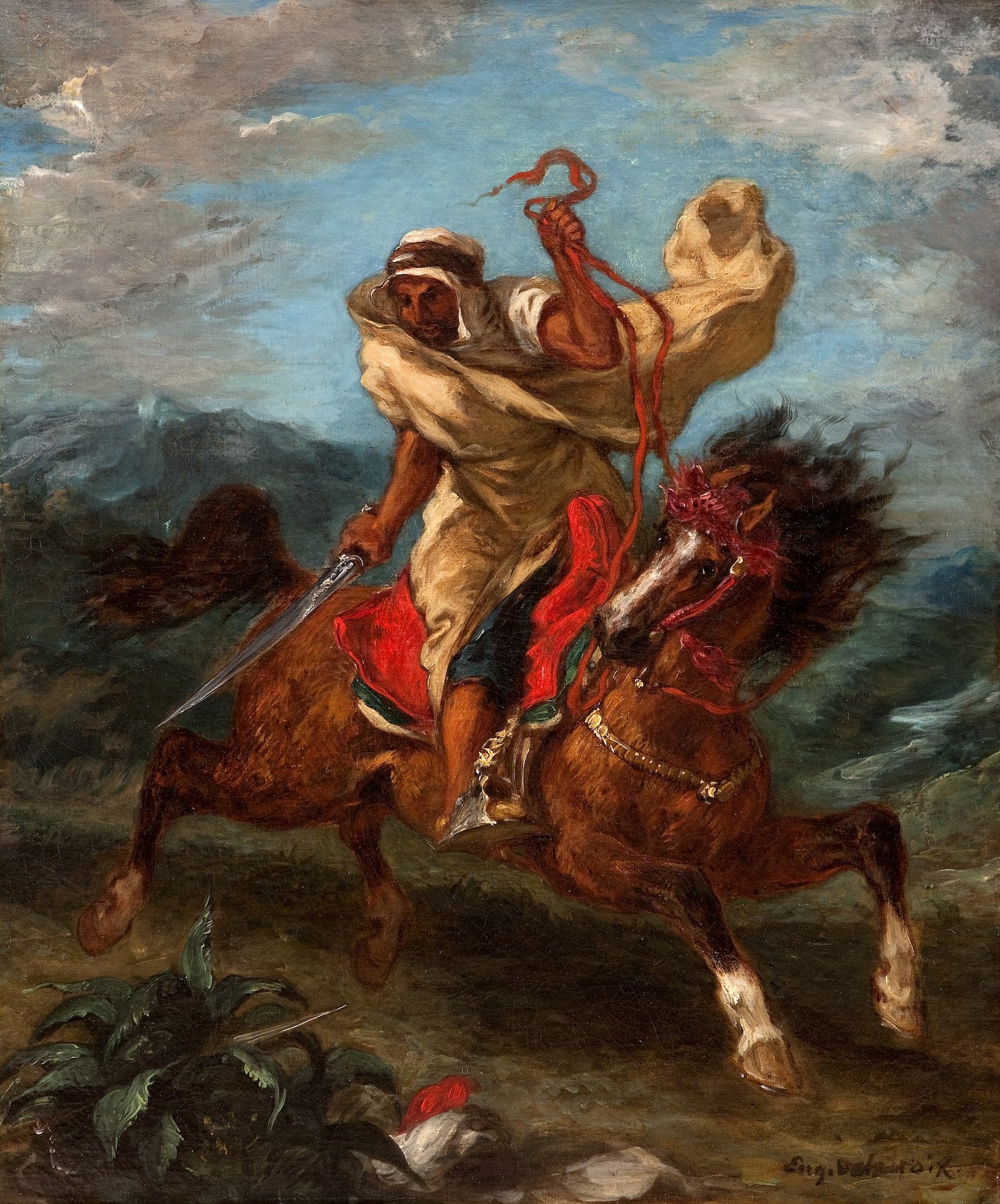
Qatar has taken a different cultural route from its neighbours in the Gulf. Dubai’s most remarkable foray is its Media City, a complex that caters for, and brings together producers, creative workers, and media houses of all dimensions, especially from the Mena region and South Asia. Abu Dhabi bought a franchise of the Louvre, while Saudi Arabia has observed a significant increase in the number of art collectors and galleries.
But none of them has invested as much in local capacities and creating cultural institutions as Qatar. So when de Bellis answers the question “why Qatar?” by saying that Art Basel and Qatar “are compelled by each other’s vision”, it is more than vague corporate talk.
“It’s not about Qatar per se,” de Bellis says. “The importance of Qatar is fundamental for this effort, but we are really looking at the entire Mena region – Qatar is just a centre now, but it will become an epicenter for a much larger region.”
Sheikha Al-Mayassa dismissed questions related to inter-regional competition, especially with Saudi Arabia, which shares Qatar’s ambition to outgrow its dependence on oil. “Competition is a Western concept. They don’t see us as competition; we complement each other”, she says.
There is, however, a more unpredictable variable in the whole venture. A few days after the interview with de Bellis, Iranian missiles targeted the American military base in Qatar. The next day, a ceasefire was brokered, though it’s unclear how long it will hold.
The Gulf state nurtures good relations with all sides in the conflict (Israel, Iran, and the United States) and, despite its proximity to danger, seems not to be anyone’s target. But any future plans in the region will rely on a fragile status quo and February 2026 suddenly looks like a long-term horizon. For now, though, it’s business as usual.
Edited by Catherine Hickley/gw

In compliance with the JTI standards
More: SWI swissinfo.ch certified by the Journalism Trust Initiative


























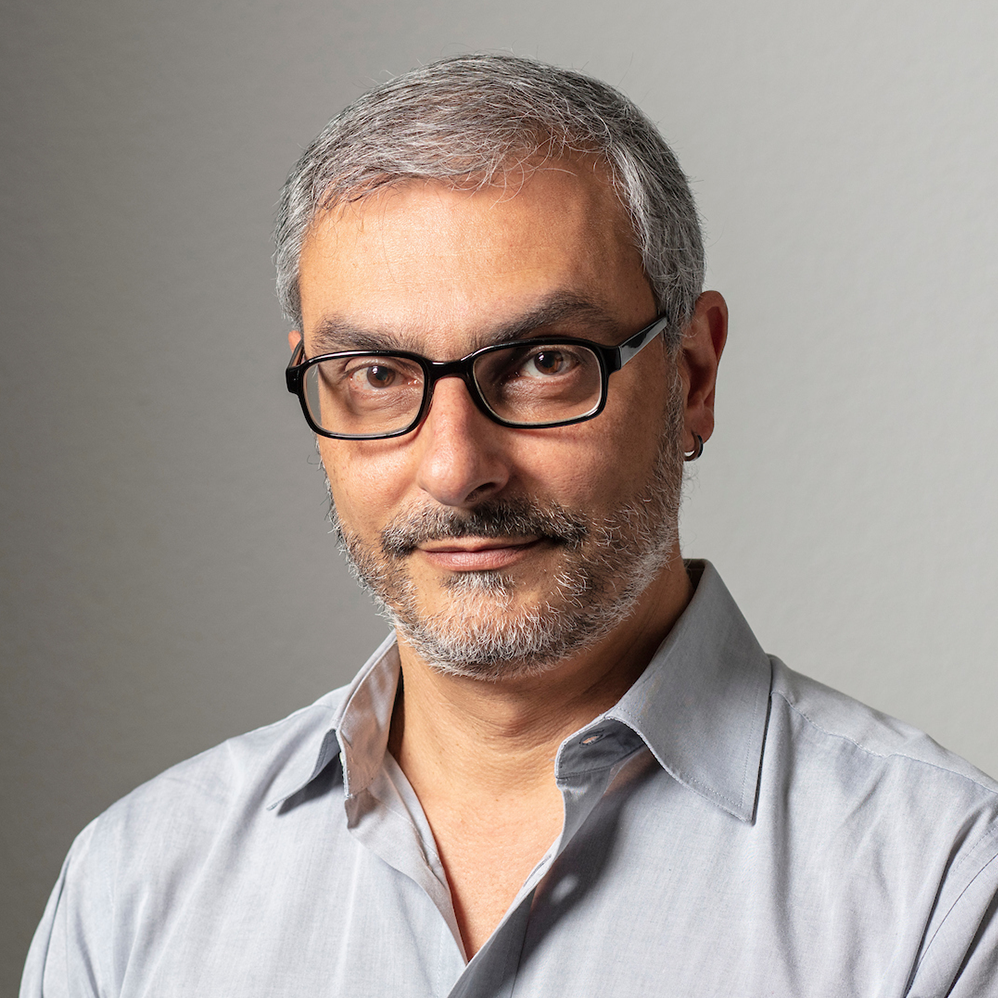









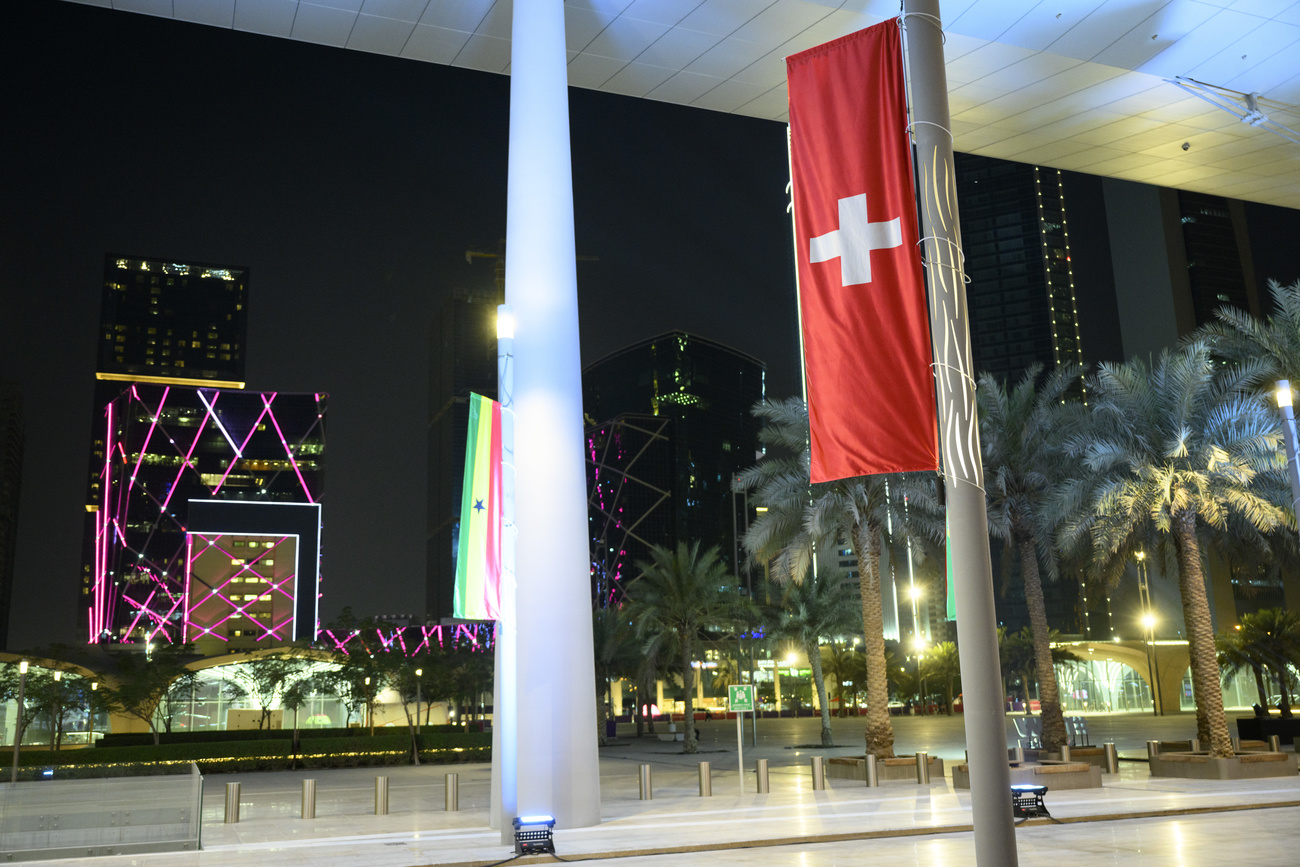
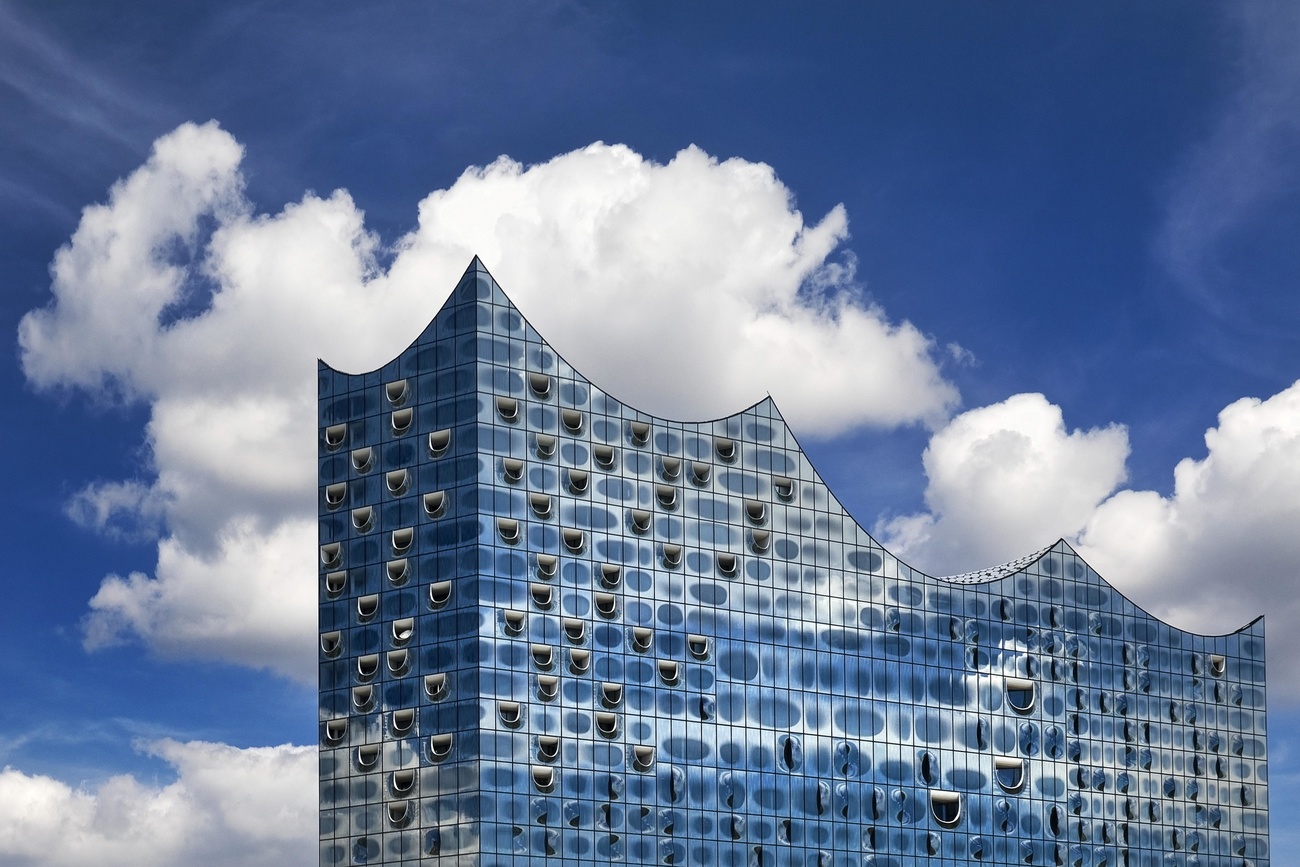
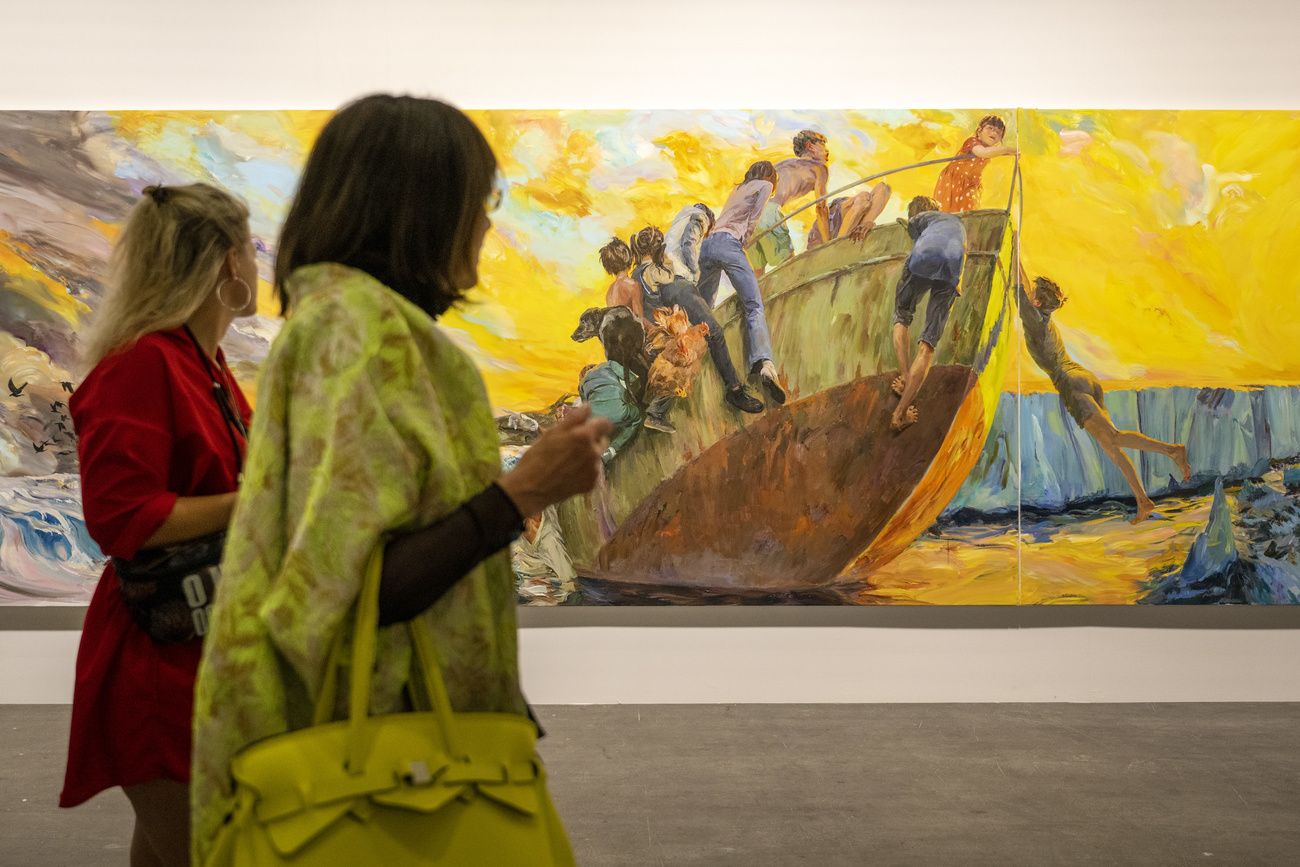
You can find an overview of ongoing debates with our journalists here . Please join us!
If you want to start a conversation about a topic raised in this article or want to report factual errors, email us at english@swissinfo.ch.